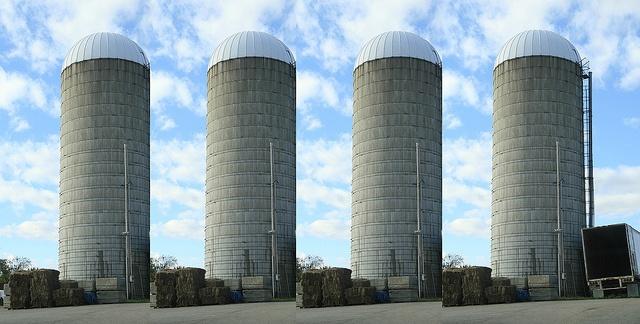
By Bill Hatton
Silos occur naturally in organizations, and companies struggle to get information out of a silo and into a broader organization. A lack of information on sourcing, for example, can cause a company to wake up one morning and find out a supplier has used conflict minerals or child labor. It’s not intentional, but the information was hidden from decision-makers’ views.
One of the biggest reasons for the corporate social responsibility (CSR)/sustainability movement was to open up silos and collect data across entire organizations and supply chains. It was step one: Let’s just find out what we are doing. Then this information is compiled in corporate responsibility reports, so all stakeholders can learn what is happening across the organization.
Lesson learned
As the sustainability and CSR movements progress, one lesson people are learning is that even these CSR reports (and the people who create them) can find themselves in a silo. Investors, for example, want financial reports. The CSR report can easily be seen as “nice to have” instead of “need to read” — even if stakeholders in fact really need to read the CSR report to get a full assessment of the material risks a company faces.
Sandy Nessing, managing director of sustainability and EHS strategy and design for American Electric Power, offers her company as an example: “The investor relations team said that the analysts and investors were grabbing the sustainability report for their disclosure on environmental performance and for the climate and policy positions.” That’s why American Electric Power has gone to an “integrated” report — combining the sustainability/CSR reporting and financial reporting in a single report.
Nessing spoke on a panel at a Nov. 5 symposium, entitled “Integrated Thinking: Drivers and Evolving Best Practices,” organized by sustainability event-programming firm Skytop Strategies and hosted at the Edelman public relations company’s office in lower Manhattan.
“We have been doing an integrated report for six years now,” Nessing said. “We’re entering our tenth year of reporting overall. We call it a corporate accountability report — it made a lot of sense for us to integrate both our financials and our non-financials.”
Six silos
What causes silos? “The term silo has been used for more than 30 years,” said Susanne Katus, vice president of business development for sustainability data software-as-a-service provider eRevalue of London. Katus hosted a panel that offered six answers:
- Functional. This is the classic definition of a silo. People are busy with their own tasks and don’t know what others are doing. Finance and marketing are busy with their own priorities. Information-sharing is limited across the functions.
- Groupthink. People get locked into one mindset – work teams don’t know what they don’t know; there are unknown unknowns; there are potential allies available, but no one knows they are out there and no one asks. McDonald’s, for example, didn’t know it had allies when it began to look at sourcing some of its products in a more sustainable way, said co-panelist James Reeves, Vice President, Business & Social Purpose, Edelman.
- Temporal. Executives think in terms of quarters. The city of Chicago, for example, has a 50-year sustainability plan. The need for immediate results can place medium- and long-term plans outside the silo, until immediate priorities for financial performance are met.
- Problem/solution. Companies think some problems are so big that one company can’t take it on, e.g., climate change. The idea that you can’t change it, that it’s too big, and thus remains outside of your locus of control, can became a problem/solution silo as you naturally gravitate toward problems you can solve. Again, this misses a potential opportunity to find allies—for climate change, that means a broad range of allies—to address the problem.
- Political. “It’s not Republicans versus Democrats, but about how you perceive the role of corporation in society,” explains Reeves. “I’ve seen a spectrum of people in companies – people who are in opposition to the spirit of sustainability, people who are toned down a bit and sort of indifferent of the role of sustainability in business, and then people who are completely unaware. When I was at Office Max, there was a culture gap, especially in the ‘aware’ category. At Office Max, the first CSR report helped break out of it.”
- Us-versus-them mindset. This is a tendency toward stereotyping the opposition. We are over here in sustainability and over there are the business units. This silo includes seeing people (and potential allies) as opposition. Reeves offer one solution exemplified during stakeholder dialogue with McDonald’s. “They brought in the stakeholders to react to the sustainability strategy one year prior to it being launched publicly. And that served to acculturate executives to a broader view, but also changed the way external stakeholders were viewed.”
Take home: CSR and sustainability professionals need to be on the lookout for the specific type of silos, whether they are in one themselves, or if they see others cut off from one another. Once you can see it, you can address it.
Image credit: Flickr/Doc Searls
Bill Hatton is a veteran business writer and the former editor-in-chief of Corporate Responsibility Magazine. He has covered management, legal, compliance and EHS topics for more than 25 years. He can be reached at billhatton at mountainvieweditor dot com.
TriplePundit has published articles from over 1000 contributors. If you'd like to be a guest author, please get in touch!














